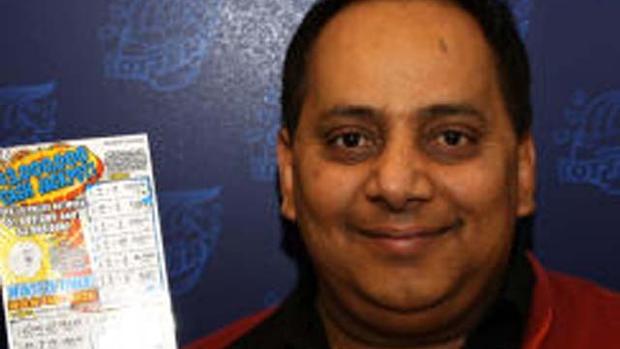Ex-lotto worker may have ticket out of scam allegations
Witnesses will give new testimony in the fraud trial of a lottery worker accused of orchestrating the largest lotto scam ever.
Eddie Tipton was one of only four people who had security clearance to the lottery's so-called drawing room. It is there that investigators say he hacked into computers and installed sophisticated malware that was designed to vanish without a trace.
Now prosecutors have to make their case without that evidence, CBS News' Elaine Quijano reports.
Prosecutors allege surveillance video shows a hooded and bearded Tipton buying a winning lotto ticket at a Des Moines convenience store in 2010, all part of his 21st century inside job, they say, to win a $16.5 million jackpot.
Tipton was then security director for the Multi-State Lottery Association, making it illegal for him to play the lottery.
Investigators say he purchased the winning ticket after he rigged the game in his favor.
In 2011, just hours before the ticket was set to expire, attorneys representing a trust attempted to claim the prize money.
"Beyond a reasonable doubt, not only was he the purchaser of that ticket, not only did he pass that ticket along to be claimed by others, but he tampered with lottery equipment in order to know what those numbers would be," prosecutor Rob Sand said.
The prosecution alleges Tipton tampered with security cameras and used a thumb drive to install malware, enabling him to pick the winning numbers. Examinations of the lottery's computers showed no signs of tampering.
Tipton's attorneys deny he was part of a scheme and say it's not him in the surveillance video.
"This isn't a case about deductions and inferences; this is a case about speculation," defense attorney Dean Stowers said.
Now the prosecution will have to make their case without key evidence.
"This is a very unique case in that most of the evidence that should be there is not. And the prosecution's theory is that it was self-deleting," John Jay College digital forensics and cybersecurity expert Adam Scott Wandt said.
He said the trial highlights the challenge law enforcement faces when prosecuting computer crimes.
"There is no evidence directly linking him to this crime, and all the evidence out there is either hypothetical or circumstantial," Wandt said. "So the defense in this case has a fairly powerful argument for reasonable doubt, and it's gonna be up to the prosecution now to overcome that."
There is one piece of digital evidence that can hurt the defense and Tipton's credibility: his cell phone records. They show he was in Iowa when the tickets were purchased and not in Texas, where he claims to have been instead. If convicted, Tipton could face 10 years in prison.
